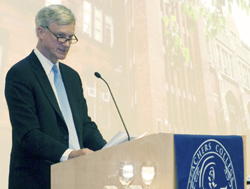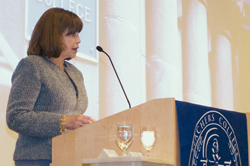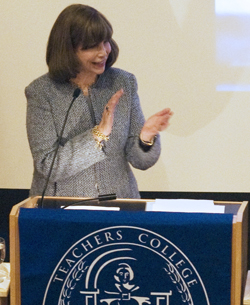Filed Under >
TC CommunityBetter Positioned to Meet the World's Challenges
In her State of the College address, Susan Fuhrman pronounces TC ready to serve as "a catalyst for educational transformation"
“Five years ago, I called on my TC colleagues to leverage our founding mission and inherent strengths into a more innovative, dynamic, and consequential version of Teachers College – a TC equipped to play an ever more influential and beneficial role in our neighborhood and city, nation and world -- while also leading the way in “educating the future” in this exciting yet turbulent century.
“Yes, my goals for TC were ambitious, and I am proud to report that pursuing these goals has made us a stronger, more nimble, and more financially secure institution.”
On the day that TC’s Board of Trustees announced that she has signed on for another stint as President, Susan Fuhrman devoted her annual State of the College address to reviewing the College’s key accomplishments during the past five years and to announcing its major goals for the next five. [click here to view the full transcript of Fuhrman’s remarks]


